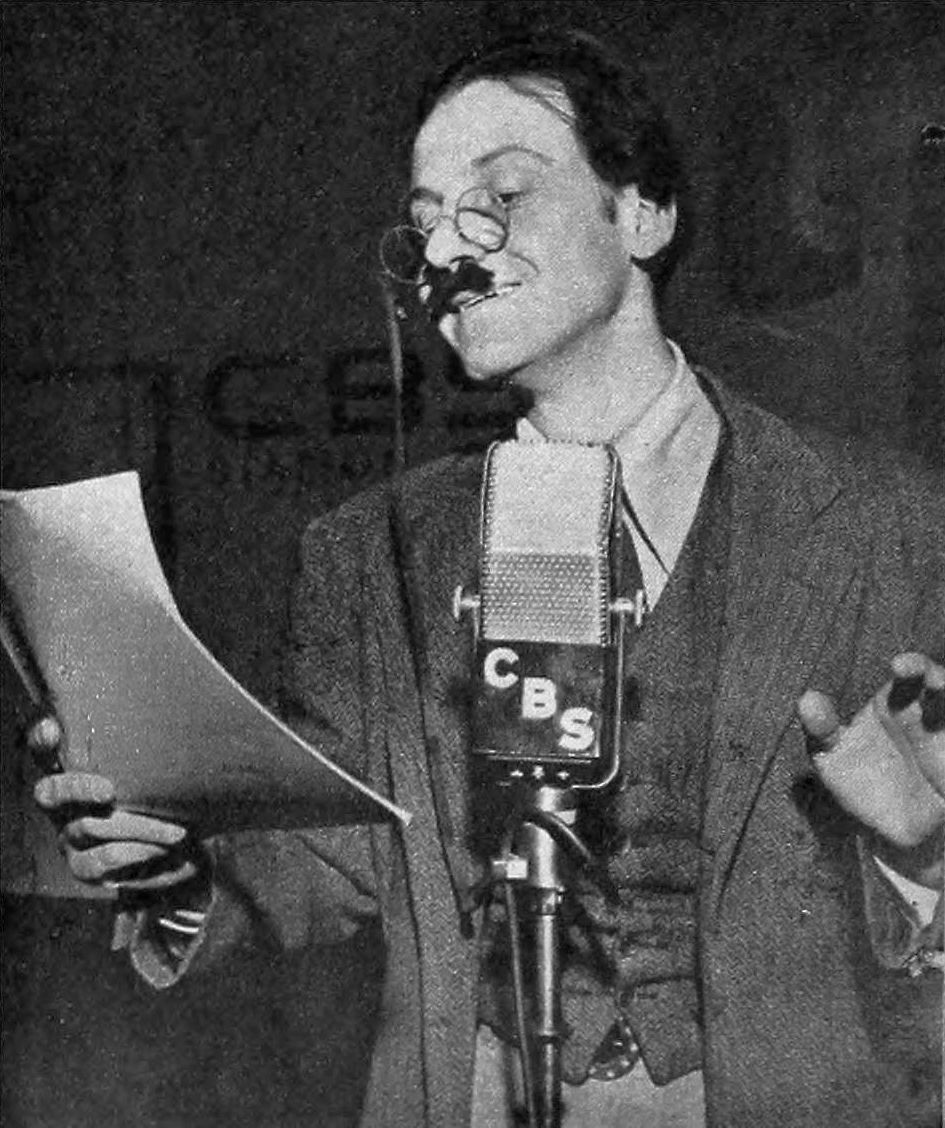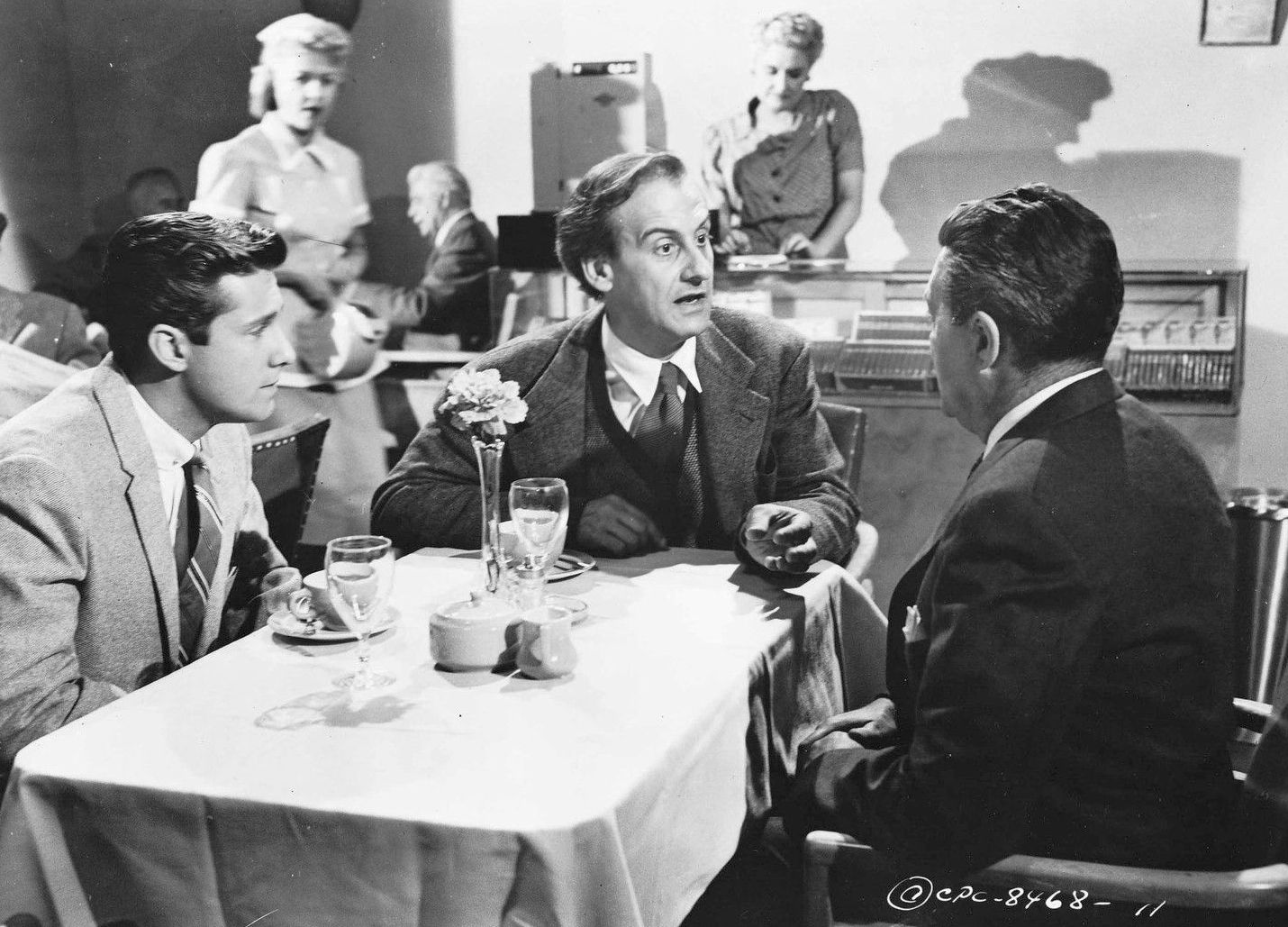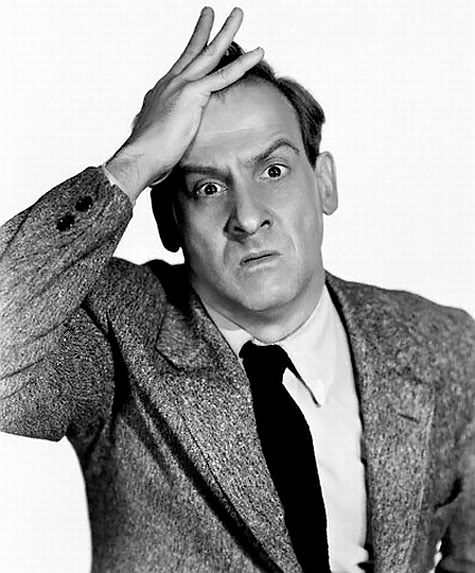Happy Birthday, Hans Conried!
Posted by Ivan G. Shreve, Jr. on Apr 15th 2014
The man born Hans Georg Conried, Jr. on this date in 1917 in Baltimore, Maryland is described by author Leonard Maltin in his book The Great American Broadcast as “one of the most prolific performers in the medium,” demonstrating a proficiency for “a dazzling range of dialects” and taking on “both serious and comic parts with enthusiasm.” The medium to which Maltin refers to is, of course, radio…but the same can be said about Hans’ extensive work in TV, movies and live theatre as well.
Born to Hans Georg, Sr. and Edith Beryl Conried (whose maiden name was “Gildersleeve,” so that could only have been a positive omen), Conried started his acting career after graduating from Columbia University (where acting was also his major), appearing on radio in the 1930s after desperately seeking work during the heights of the Great Depression. Many of the actor’s gigs were for independent producers like C. P. MacGregor, who specialized in fifteen- and thirty-minute syndicated programs. “They paid $3.50 or $5.00 for the show,” Hans once related at a meeting of the Pacific Pioneer Broadcasters, “and we would have to stand by. God forbid the announcer would make a fluff on the end of a fifteen-minute platter; we all had to do it all over again.” Conried would soon find his talents much in demand on network radio—his broadcasting career would become linked with actor John Barrymore, since Hans was paid by the producers of Rudy Vallee’s Sealtest program (on which Barrymore was a regular) on a stand-by basis—ready to step in should The Great Profile be too incapacitated to perform. (Conried can also be heard on a number of early broadcasts of The John Barrymore Theatre, on which he was able to indulge his lifelong love of Shakespeare.)
Hans also worked a great deal with radio wunderkind Orson Welles—then again, the actor maintained a frequent presence on many of the medium’s top dramatic anthology shows: The Cavalcade of America, The CBS Radio Workshop, Crime Classics, Escape, Family Theatre, Favorite Story, Hallmark Playhouse, The Lux Radio Theatre, The Railroad Hour, Romance, Suspense and The Whistler, to name a few of the many. On the other side of the comedy/tragedy mask, Conried worked with a slew of radio’s best-known funny men (and women) including Fred Allen, Amos ‘n’ Andy (Freeman Gosden and Charles Correll), Jack Benny, Edgar Bergen (and Charlie McCarthy), Fanny Brice, Bob Burns, Eddie Cantor, Jack Carson, Joan Davis, Dennis Day, Bob Hope, Dean Martin & Jerry Lewis, Ozzie & Harriet Nelson and Alan Young.

On George Burns & Gracie Allen’s program in the 1940s, Hans had the recurring role of ham actor Nigel “Cueball” Bolingbrook, a con man who met his match whenever he went up against the scatterbrained–but–guileless Gracie; Conried later appeared on the couple’s show as Dr. Miller, a neighbor who found his psychiatry career continually challenged after moving in next to the Burnses. Hans played Mr. Hemingway, the constantly kvetching boarder of Judy Canova on her show, and joined his fellow cast member Mel Blanc on Blanc’s self-titled sitcom as “Mighty Potentate” Mr. Cushing, who headed up The Loyal Order of Benevolent Zebras and greeted Mel each week with the show’s memorable catchphrase “Ugga ugga boo ugga boo boo ugga!” Hans also appeared occasionally as Uncle Baxter, the sponging relative of Chester A. Riley on the sitcom The Life of Riley, and as sardonic neighbor Pete Porter on December Bride (a role later played by Harry Morgan on television).
Hans’ best-remembered comedic turns were on two series created by writer Cy Howard. On My Friend Irma, he originated the part of Professor Kropotkin, the upstairs neighbor of Jane Stacy (Cathy Lewis, Joan Banks) and Irma Peterson (Marie Wilson), who announced his presence each week by gently rapping on the girls’ front door and meekly saying “It’s only me, Professor Kropotkin.” (Conried would reprise the role in the 1949 feature film based on the series—but only after the actor originally cast as Kropotkin, Felix Bressart, died unexpectedly during filming.) Howard’s second radio success, Life with Luigi, cast Conried as Schultz, the German-born classmate of fellow immigrant Luigi Basco (J. Carrol Naish)…who never missed an opportunity to explain to Luigi and his other students that “My rheumatism is killing me!” You’d be hard pressed to find a radio show that the ubiquitous actor didn’t appear on. Even after radio gave way to television as the dominant medium, Hans Conried appeared on such revival series as The CBS Radio Mystery Theatre, Earplay, Heartbeat Theatre and The Sears/Mutual Radio Theatre.

At the same time his radio career was on fire, Conried supplemented his income with movie appearances—beginning with his debut in 1938’s Dramatic School. Although Conried preferred radio to film (the parts were larger and the money better), he turns up often in small or unbilled roles in favorites such as It’s a Wonderful World (1939), Dulcy (1940), Blondie’s Blessed Event (1942), Journey Into Fear (1943), Crazy House (1943), On the Town (1949), Summer Stock (1950) and I’ll See You in My Dreams (1951). 1953 was a particularly memorable year for Hans: in addition to his Broadway debut in Can-Can, he made six feature films (including the hilarious The Siren of Bagdad) and starred in two of them, The 5,000 Fingers of Dr. T and The Twonky (written, directed, and produced by radio legend Arch Oboler). (The latter two movies have considerable cult followings.) That same year, Hans provided the voice of Captain Hook in Disney’s Peter Pan and would do additional work for that studio such as the featurette Ben and Me and playing the role of “Slave of the Magic Mirror” on TV’s Disneyland.
Hans continued doing voice work on the small screen, notably providing the speaking voice of “Snidely Whiplash” in the Dudley Do-Right segments of Rocky and His Friends (he also voiced “Uncle Waldo” on Hoppity Hooper and was the host of Jay Ward’s live-action Fractured Flickers). He did guest appearances on all three of Lucille Ball’s classic sitcoms—I Love Lucy, The Lucy Show and Here’s Lucy, which was no doubt “old home week” for Hans since he had worked with the zany redhead on her radio sitcom My Favorite Husband (as Mr. Woods, the next-door neighbor who was blessed with many mouths to feed). Conried’s most recognizable TV gig was that of Uncle Tonoose, the excitable relative of Danny Williams from Make Room for Daddy (a.k.a. The Danny Thomas Show); Hans later reprised the role of the Williams patriarch on the 1970s follow-up, Make Room for Granddaddy.

Hans Conried died on January 5, 1982…and we’ve just barely scratched the surface of all he accomplished in his remarkable show business career. To his peers, he was known as an actor who never met a part he didn’t like. Gale Gordon, with whom Conried worked on My Favorite Husband and Burns & Allen, once observed: “He was an actor-holic. I’m sure that Hans’ idea of heaven would be to do a play that had thirty characters, men and women, and that he would do them all.” You can get a feel for the depth of his performances and range of his dialects by checking out such signature Radio Spirits collections as My Friend Irma: On Second Thought and Life with Luigi. There’s also a whole lot of Hans on Burns & Allen (Treasury),The Damon Runyon Theatre (Broadway Complex), The Halls of Ivy, The Life of Riley (My Head is Made Up!), The Phil Harris-Alice Faye Show (Private Lives) and Richard Diamond, Private Detective (Surplus Homicides).

